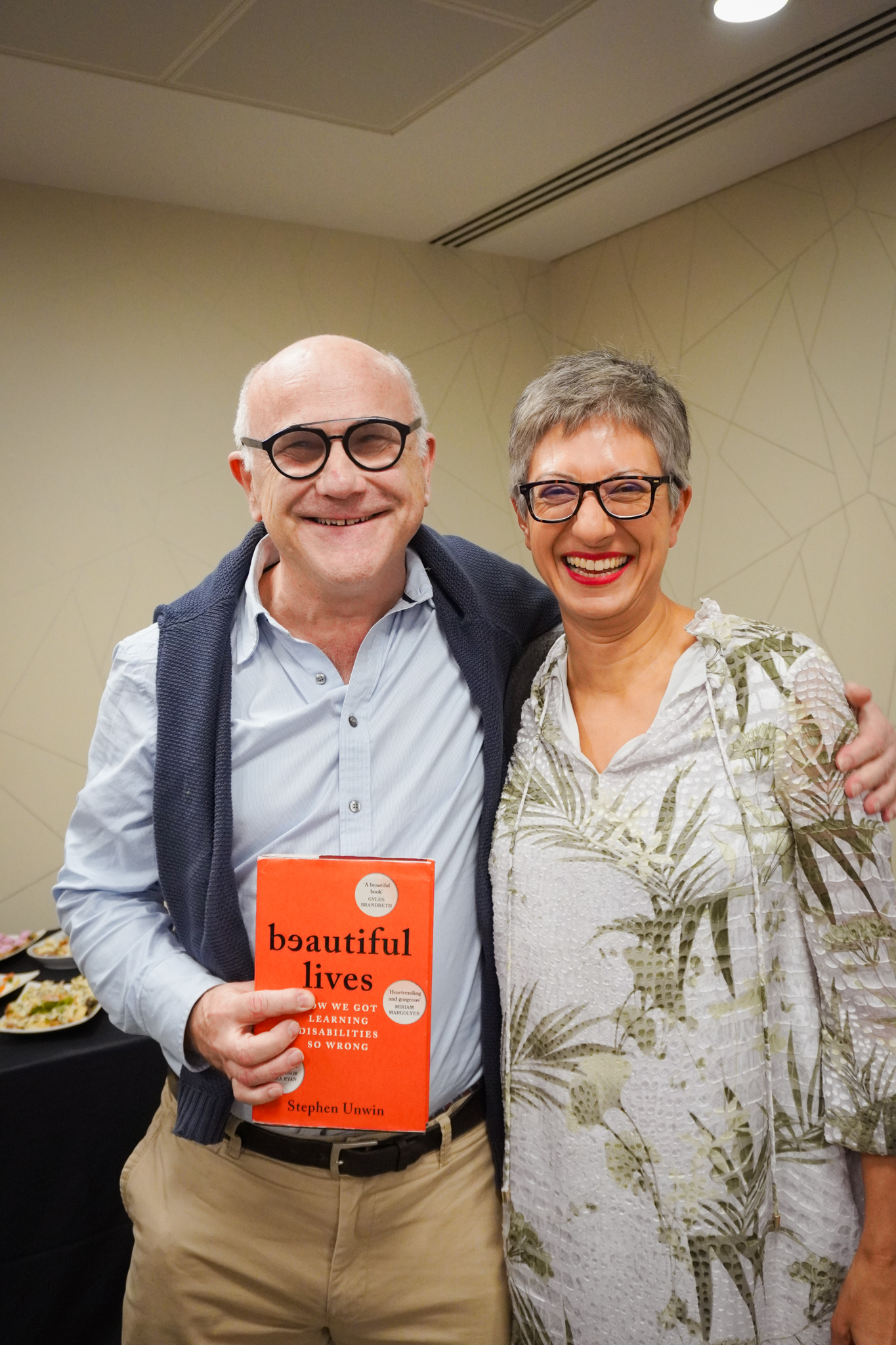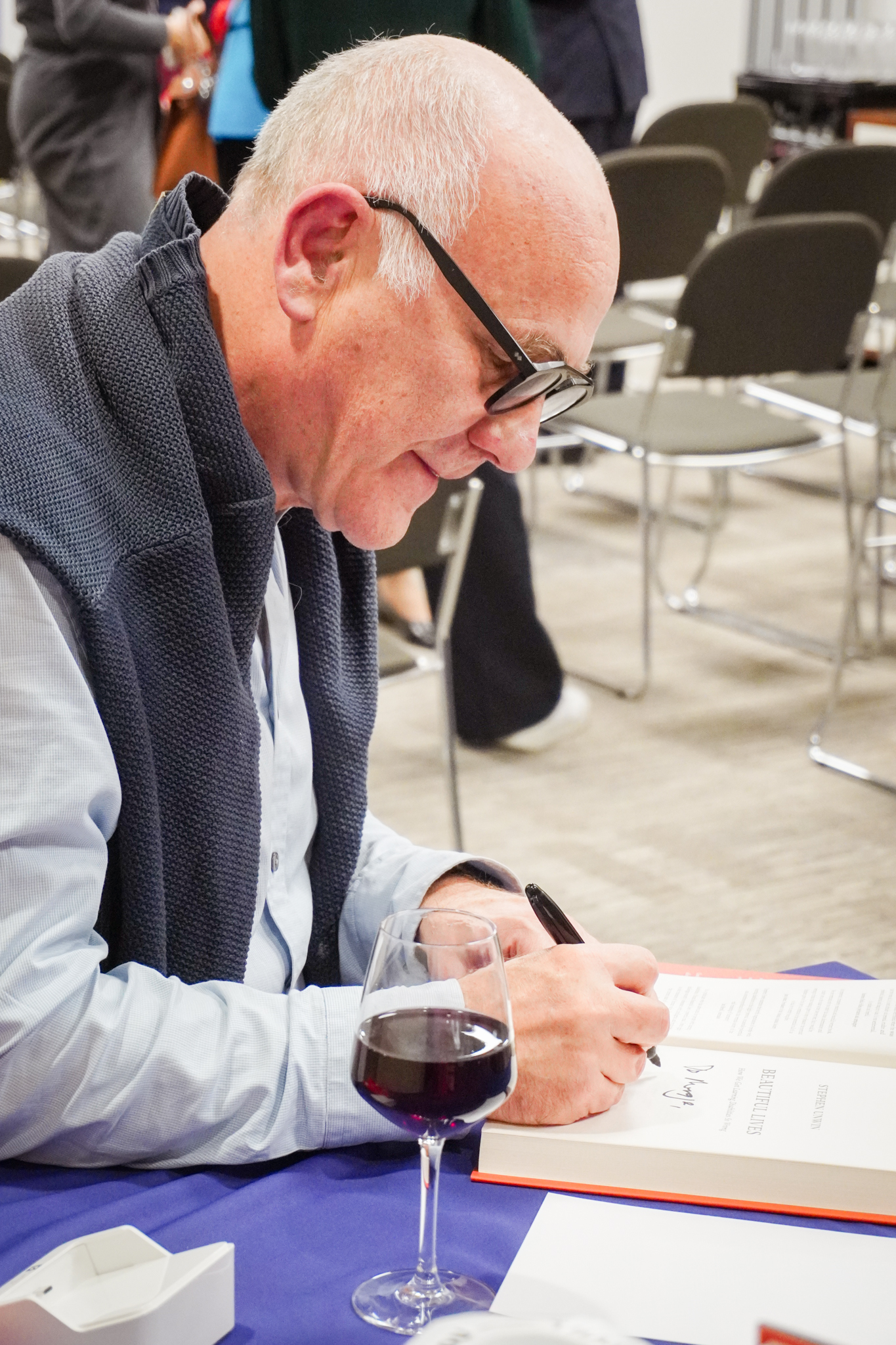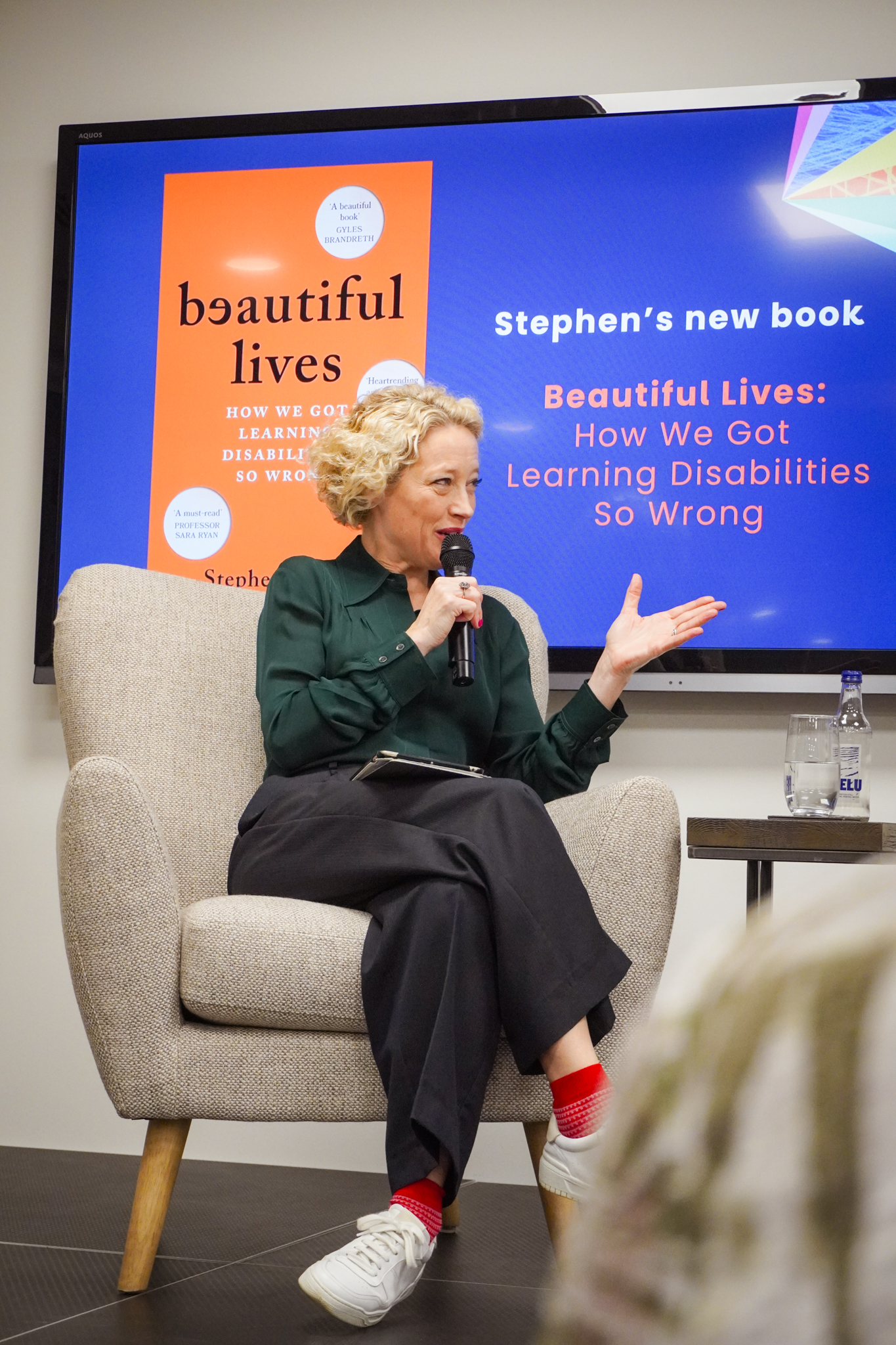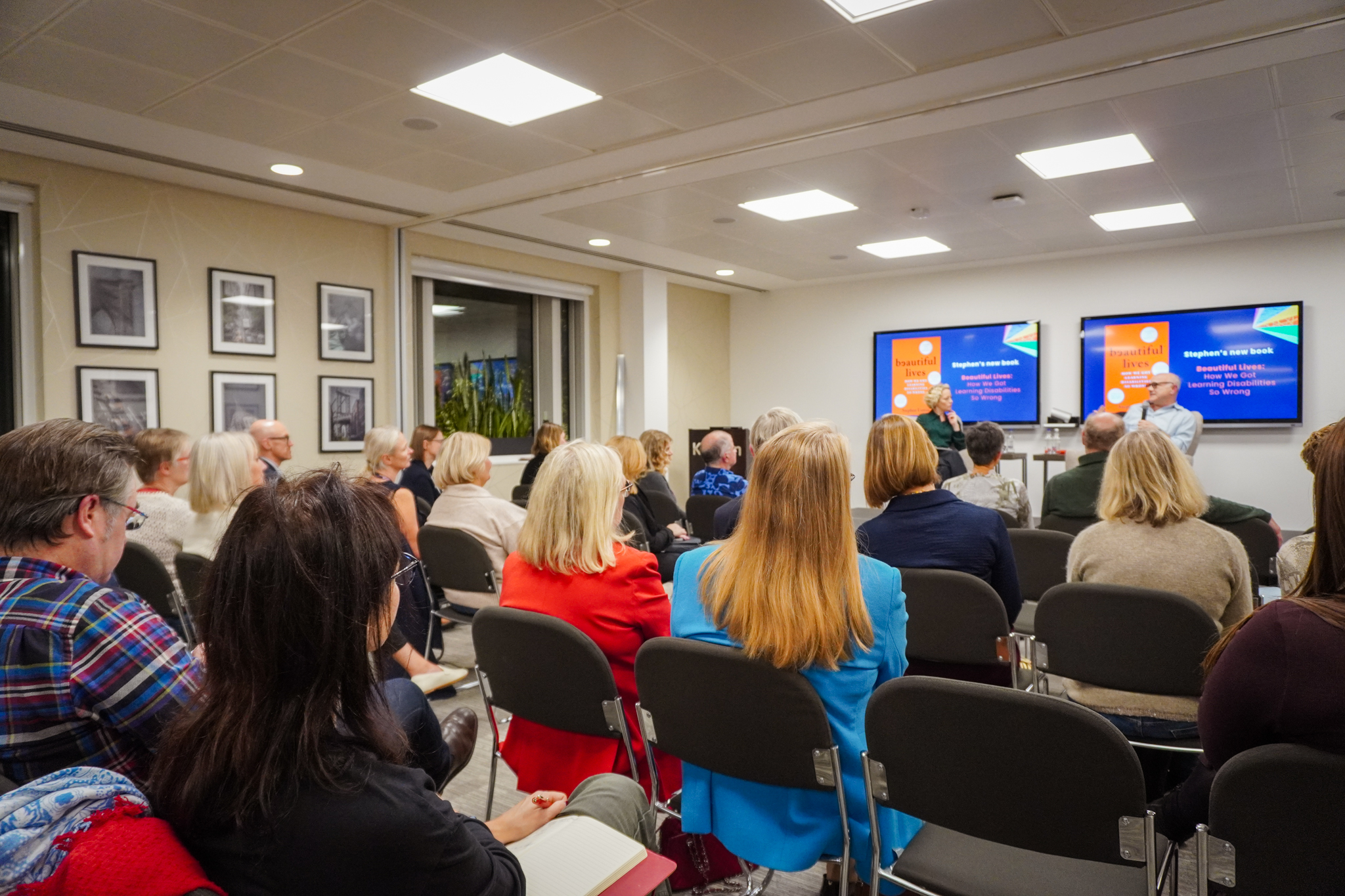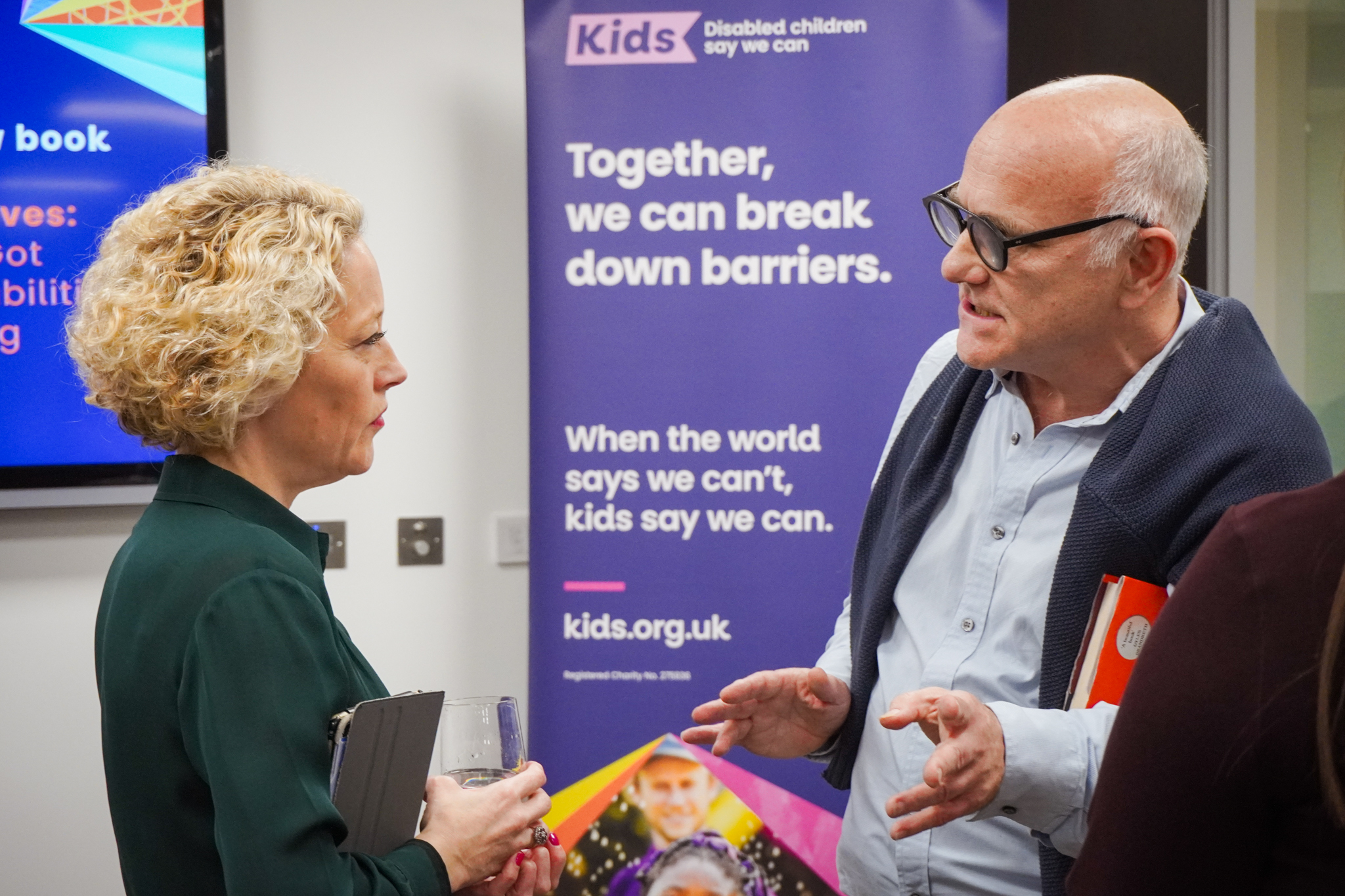An Evening with Stephen Unwin: Powerful Conversation on Learning Disabilities
We had the privilege of hosting an inspiring and thought-provoking evening with acclaimed theatre director, author, and former Chair of Kids, Stephen Unwin, as he discussed his powerful new book, Beautiful Lives: How We Got Learning Disabilities So Wrong.
Published: 4 Nov 2025
The event was a moving exploration of history, society, and human experience, highlighting the way people with learning disabilities have been misunderstood, undervalued, and all too often, excluded.
A conversation that spanned centuries
Hosted by Cathy Newman, Stephen took guests on a remarkable journey through history. He suggested that before the Enlightenment people with learning disabilities were regarded as innocents, part of society, part of humanity. But in trying to define what it is to be human, the eighteenth century ‘science of man’ privileged reason and language, casted doubt on the very humanity of those whose abilities in these areas were less.
Fast forward to the early twentieth century and people with learning disabilities, sometimes called “feeble-minded”, were segregated and in some countries sterilised and even murdered. This history of dehumanisation, Stephen explained, is with us still and he challenges us to consider our own attitudes and practices.
Joey’s journey
Central to Stephen’s book, and the evening’s conversation, is his son, Joey. Through stories of Joey’s life, Stephen illustrated both the joys and challenges of raising a child with profound learning disabilities. From laughing at repeated scenes in Monsters Inc to navigating epilepsy and the realities of supported living, Joey is a powerful reminder of the individuality and humanity of every person with learning disabilities.
Stephen emphasised the need for re-humanisation, encouraging us to see people not as labels or statistics but as human beings with passions, quirks, and the same rights as anyone else.
“We need to keep championing the thing that says no, we’re not going to be divided like this.”
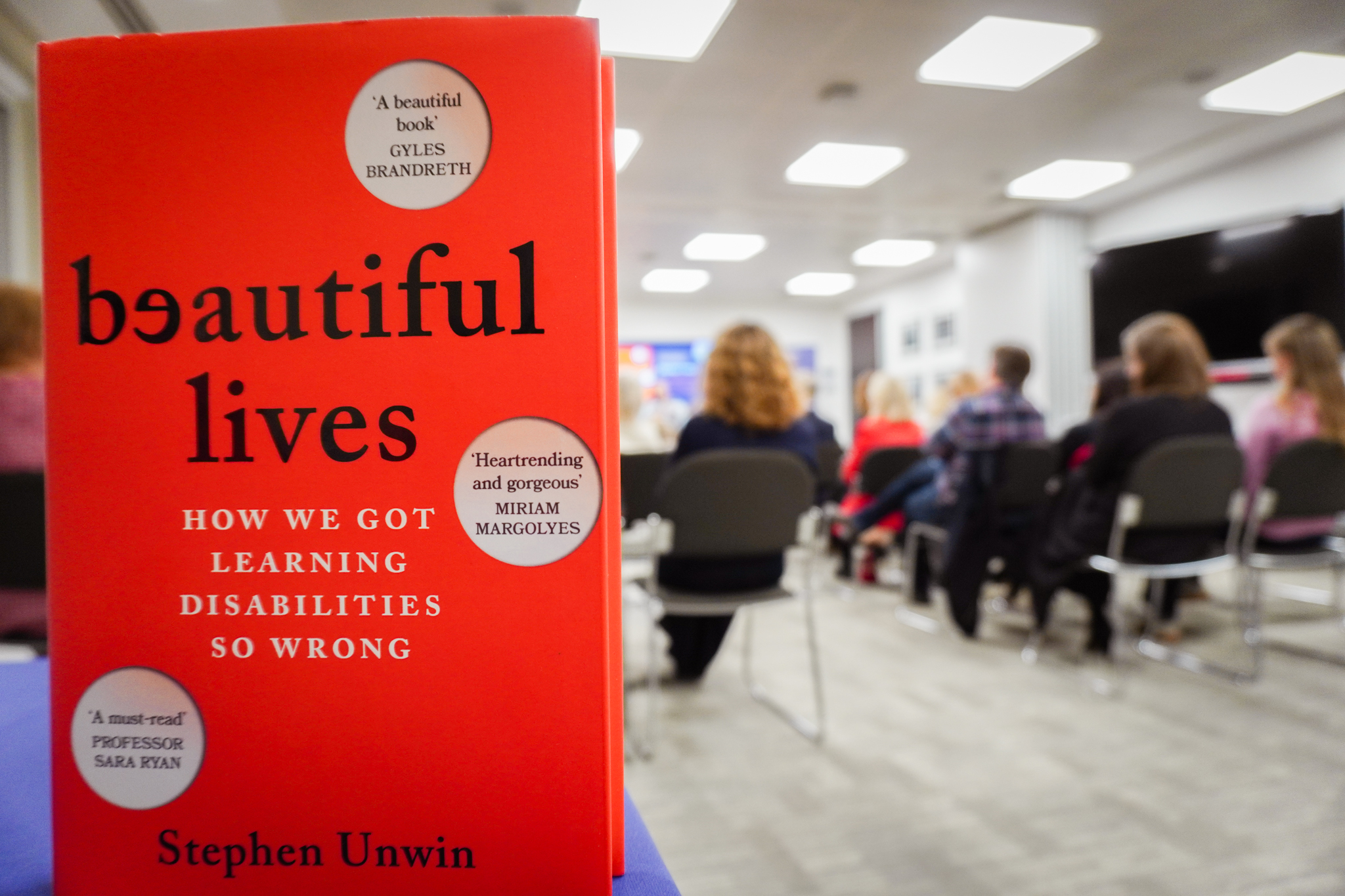
The gap between aspiration and reality
The conversation also highlighted ongoing challenges in education, social care, and healthcare. Despite policies and frameworks like EHCPs (Education, Health and Care Plans), there remains a wide gap between societal aspirations and the reality faced by children and young people with learning disabilities.
Stephen spoke about systemic issues, from cuts to school transport and support services to the misallocation of resources, that prevent children and young people from fully participating in society. Yet, amid these challenges, he emphasised the crucial role of charities like Kids, which prioritise the needs of children and young people, and their families.
A call to action
Beautiful Lives is more than a book; it’s a call to action. Stephen urges us to rethink how we define human worth, to champion universal human rights, and to ensure that society’s most vulnerable are not left behind. It’s a timely reminder that inclusion is not just about policy but about culture, compassion, and commitment.
The evening concluded on a hopeful note, with Stephen sharing Joey’s positive journey in supported living – a testament to the difference that love, support, and advocacy can make.
